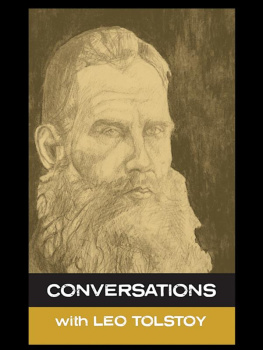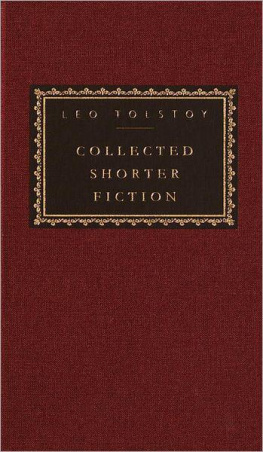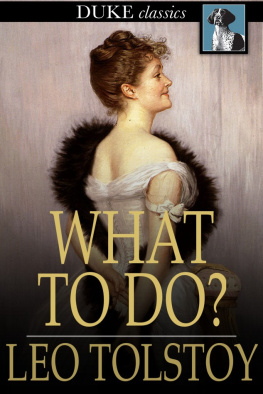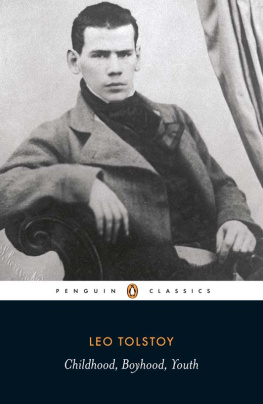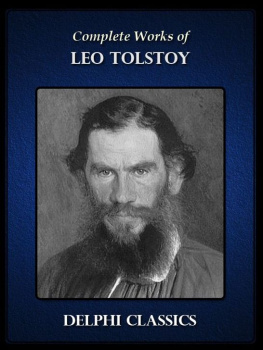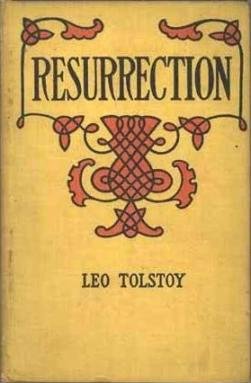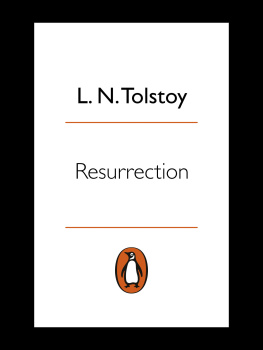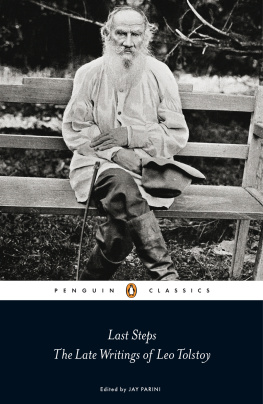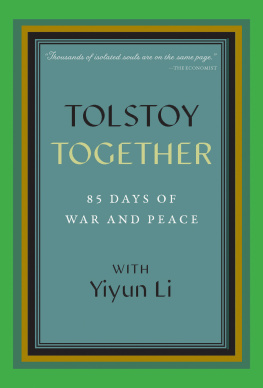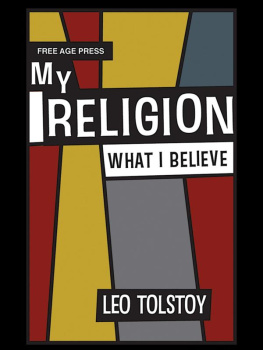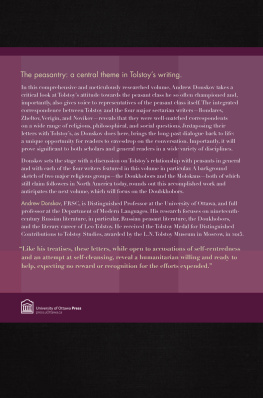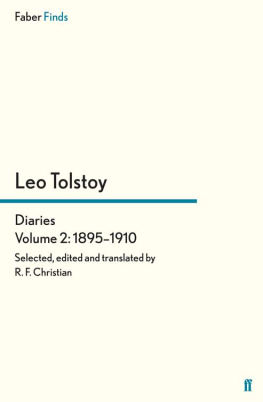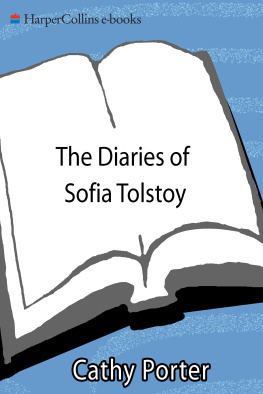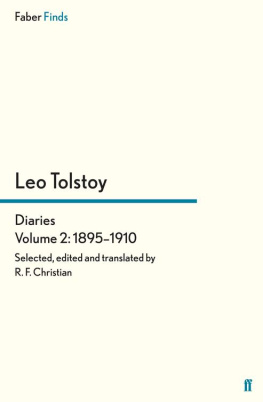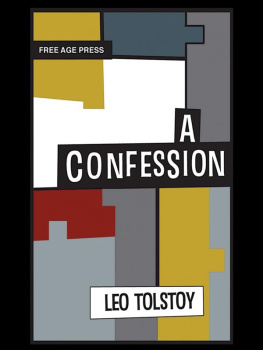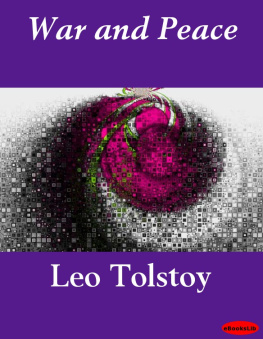Leo Tolstoy - Conversations with Leo Tolstoy: In His Own Words
Here you can read online Leo Tolstoy - Conversations with Leo Tolstoy: In His Own Words full text of the book (entire story) in english for free. Download pdf and epub, get meaning, cover and reviews about this ebook. year: 2010, publisher: White Crow Productions Ltd, genre: Religion. Description of the work, (preface) as well as reviews are available. Best literature library LitArk.com created for fans of good reading and offers a wide selection of genres:
Romance novel
Science fiction
Adventure
Detective
Science
History
Home and family
Prose
Art
Politics
Computer
Non-fiction
Religion
Business
Children
Humor
Choose a favorite category and find really read worthwhile books. Enjoy immersion in the world of imagination, feel the emotions of the characters or learn something new for yourself, make an fascinating discovery.
- Book:Conversations with Leo Tolstoy: In His Own Words
- Author:
- Publisher:White Crow Productions Ltd
- Genre:
- Year:2010
- Rating:5 / 5
- Favourites:Add to favourites
- Your mark:
Conversations with Leo Tolstoy: In His Own Words: summary, description and annotation
We offer to read an annotation, description, summary or preface (depends on what the author of the book "Conversations with Leo Tolstoy: In His Own Words" wrote himself). If you haven't found the necessary information about the book — write in the comments, we will try to find it.
In Conversations with Leo Tolstoy, Simon Parke grants us the honour of sitting with the great man, towards the end of his life; and gives us the chance to chat with him. The conversation is imagined, but not Tolstoys answers. This is Tolstoy is his own words, drawn from his extensive books, essays and letters; and the military, vegetarianism, marriage, non-violence, death, God and sex are all on the agenda.
I want people to come away feeling they know Tolstoy, says Simon Parke, who was keen to use only Tolstoys authentic words. They will be become aware of his opinions certainly, for he was forthright in those. He had an opinion on everything! But I hope also that people leave with a sense of the man beneath the opinions. I dont always agree with him; but it is hard not to admire him. He was far from perfect, but as he says: just because he walks the road like a drunk, doesnt mean its the wrong road.
When most think of Tolstoy, they think of the great author.
War and Peace and Anna Karenina brought him worldwide fame, and a good deal of money. Had he done nothing else in life, these two novels would have ensured him status and respect. Few others had written both a national epic and a great love story; and some might have been content with that.
For his last thirty years, however, Tolstoy walked a different track. After his spiritual crisis, when he was 50, he exchanged his authors clothes for those of a prophet a prophet who was to have a great influence on Gandhi amongst others. Through his prolific writing, he now became the scourge of the rich, the Church and the Government. Neither did he miss an opportunity to denounce both science and art. Darwin? Dostoyevsky? Shakespeare? No one was to be left standing.
In Conversations with Leo Tolstoy, Simon Parke grants us the honour of sitting with the great man, towards the end of his life; and gives us the chance to chat with him. The conversation is imagined, but not Tolstoys answers. This is Tolstoy is his own words, drawn from his extensive books, essays and letters; and the military, vegetarianism, marriage, non-violence, death, God and sex are all on the agenda.
I want people to come away feeling they know Tolstoy, says Simon Parke, who was keen to use only Tolstoys authentic words. They will be become aware of his opinions certainly, for he was forthright in those. He had an opinion on everything! But I hope also that people leave with a sense of the man beneath the opinions. I dont always agree with him; but it is hard not to admire him. He was far from perfect, but as he says: just because he walks the road like a drunk, doesnt mean its the wrong road.
Leo Tolstoy: author's other books
Who wrote Conversations with Leo Tolstoy: In His Own Words? Find out the surname, the name of the author of the book and a list of all author's works by series.

